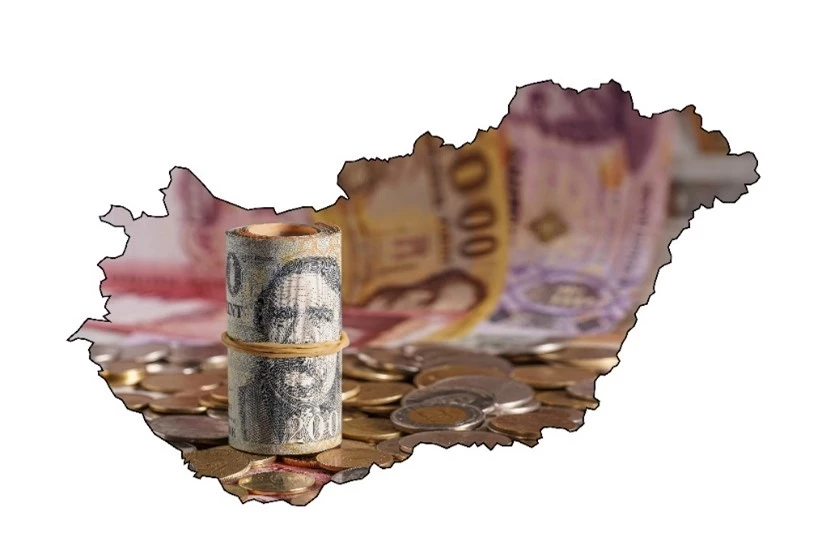Central bank’s surprising decision: forint starts to strengthen – UPDATED

Change language:
Hungarian central bank (Magyar Nemzeti Bank, MNB) rate-setters cut the base rate by 75 basis points, to 10.00%, at a regular policy meeting on Tuesday.
According to economx.hu, the cut was lower than the market expected. Experts believed the cut would reach 100 basis points.
In December, the national bank talked about a 100-basis-point cut for January.
According to portfolio.hu, the forint struggled on Monday because the EU heads threatened Hungary with new economic sanctions provided PM Orbán does not vote for Ukraine’s financial aid. As a result, the forint hit the 390/EUR level. That has been unprecedented since last autumn.
Since the monetary council of the national bank did not accelerate the pace of the base rate cut, the forint started to strengthen after the MNB’s announcement.
Thanks to the lower base rate cut, the forint strengthened to 387/EUR in the afternoon. This morning, the Hungarian national currency opened the day at 389.4/EUR.
Read also:
- Hungarian forint has fallen to a low we have not seen for months – Read more HERE
- Transparency International’s shocking finding about corruption in Hungary – Details in THIS article
UPDATE: Thanks to the lower base rate cut and the good news concerning the EU summit and a possible Hungary-European Council agreement about the Ukraine aid in Brussels, the forint went below 384/EUR by Wednesday evening.
Disinflation is expected to continue
The Council also decided to lower the symmetric interest rate corridor in tandem, bringing the O/N deposit rate to 9.00 percent and the O/N collateralised loan rate to 11.00 percent.
In a statement released after the meeting, the Council said the country’s risk perception continued to improve “despite a volatile global sentiment”, allowing the base rate to continue to be lowered.
They said Hungary’s risk perception improved further despite a “volatile global sentiment” thanks to “the trend-like improvement” in the country’s current account balance, and the current account balance-to-GDP ratio improved by more than 8 percentage points in 2023.
The Council said “the utilisation of new export capacities built recently and the improving global economic environment” were expected to give new impetus to exports in the coming years. The inflow of EU funds, they added, would contribute to boosting Hungary’s net lending and an increase in central bank foreign exchange reserves.
Disinflation is expected to continue in the first quarter and inflation “is likely to approach the upper bound of the tolerance band in the spring months”, the Council said.
“In the coming months, decisions on any further reductions in the base rate and their optimal pace will be made on the basis of this information, in a data-driven manner,” they added.
At a press conference after the meeting, deputy bank governor Barnabas Virag said improvements in macroeconomic fundamentals could have allowed a bigger cut, but said “noise” on money markets that started a week ago Monday had justified the 75 basis point option.
PM Orbán: Brussels blackmails EU members if they diverge on war, migration, gender
Prime Minister Viktor Orbán has told French weekly Le Point that Hungary offered to compromise regarding the financing of Ukraine but this was not well received, and member states that diverged from the EU on the issues of war, migration and gender, were blackmailed by “imperialist Brussels”. In the interview published on Tuesday, Orbán said Hungary maintained its stance that no military solution to the war in Ukraine was foreseeable and a ceasefire and peace talks were necessary.





